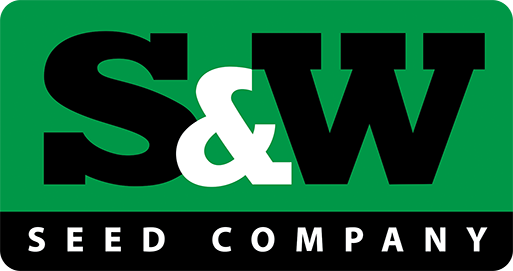S&W Seed Company (Nasdaq: SANW) today announced that the U.S. Patent and Trademark Office has granted S&W a patent covering its unique stevia plant variety ‘SW 129.’ In trials, ‘SW 129’ yielded over 5,000 pounds of leaf per acre per year, 98% more Reb-A content and more than a 475% increase in the Reb-A to stevioside ratio, as compared to test samples from a standard stevia variety. The increased leaf mass and Reb-A content is expected to give growers and processors increased efficiencies and higher profitability. This is S&W’s third patent granted for its unique stevia varieties.
This new stevia plant variety has been developed to address commercial processing markets in North America, South America, and other regions of the world where stevia is produced. In addition to increased leaf mass and Reb-A content, ‘SW 129’ also is designed to provide sweet leaves with high overall levels of steviol glycosides, excellent overwintering 20° F (-7° C), high plant vigor, and high leaf yield and to be late flowering. The Company believes that ‘SW 129’ may be ideally suited for commercial level stevia extraction due to these enhanced characteristics. Companies producing consumer food products, as well as ingredient manufacturers, are increasingly recognizing the value of stevia as an all-natural sweetener in beverage, dairy, baking and snack products.
Mark Wong, president and chief executive officer of S&W Seed Company commented, “S&W is developing a strong portfolio of patents within stevia. ‘SW 129’ exhibits higher leaf mass, increased Reb-A content, as well as other critical attributes that should allow it to be ideally suited for consumer food products. Our stevia development team has done an exceptional job developing varieties, and we intend to aggressively pursue commercialization opportunities for these varieties in the near future.”
Stevia rebaudiana is a plant species in the sunflower (Asteraceae) family, which has naturally non-caloric sweet leaves. The active compounds that impart the sweet flavor to stevia leaves are steviol glycosides. The most common steviol glycosides are stevioside and rebaudioside A, which are reported to be between 200 and 400 times sweeter than table sugar. The development of new varieties of Stevia rebaudiana with higher levels of rebaudioside A than stevioside is desirable for use as a sugar substitute.
The Company’s patent was issued on September 12, 2017, as U.S. Plant Patent PP28373. The term of an issued plant patent is the same as that of an issued utility patent, which is 20 years from the patent’s filing date. Based on the filing date, the patent for ‘SW 129’ will expire on November 17, 2035.
About S&W Seed Company
Founded in 1980, S&W Seed Company is a global agricultural Company, headquartered in the San Joaquin Valley of California. The Company’s vision is to be the world’s preferred proprietary seed Company which supplies a range of forage and specialty crop products that supports the growing global demand for animal proteins and healthier consumer diets. The Company is a global leader in alfalfa seed, with significant research and development, production and distribution capabilities. S&W’s capabilities span the world’s alfalfa seed production regions, with operations in the Western United States, including the San Joaquin and Imperial Valleys of California, Australia, and Canada, and S&W sells its seed products in more than 30 countries around the globe. The Company also provides hybrid sorghum and sunflower, and is utilizing its research and breeding expertise to develop and produce stevia, the all-natural, zero calorie sweetener for the food and beverage industry. For more information, please visit www.swseedco.com.
Safe Harbor Statement
This release contains “forward-looking statements” within the meaning of Section 27A of the Securities Act of 1933, as amended, and Section 21E of the Securities Exchange Act of 1934, as amended and such forward-looking statements are made pursuant to the safe harbor provisions of the Private Securities Litigation Reform Act of 1995. “Forward-looking statements” describe future expectations, plans, results, or strategies and are generally preceded by words such as “may,” “future,” “plan” or “planned,” “will” or “should,” “expected,” “anticipates,” “draft,” “eventually” or “projected.” Forward-looking statements in this release include, but are not limited to, statements concerning SW 129’s ability to increase efficiency and profitability for growers and processors, the demand for our products, the anticipated benefits of our growing and cultivation strategies and our general commercialization strategies, and our ability to execute those strategies. You are cautioned that such statements are subject to a multitude of risks and uncertainties that could cause future circumstances, events, or results to differ materially from those projected in the forward-looking statements, including the risk that we may not achieve our expected results, risks associated with our distributors’ abilities to effectively distribute and market our products, risks associated with our ability to successfully commercialize, optimize and diversify our business, and risks related to factors beyond our control that may impact market prices or demand for our products. These and other risks are identified in our filings with the Securities and Exchange Commission, including without limitation our Annual Report on Form 10-K for the fiscal year ended June 30, 2016 and in our other filings subsequent made with the Securities and Exchange Commission. All forward-looking statements contained in this press release speak only as of the date on which they were made and are based on management’s assumptions and estimates as of such date. The Company does not undertake any obligation to publicly update any forward-looking statements, whether as a result of the receipt of new information, the occurrence of future events or otherwise.
